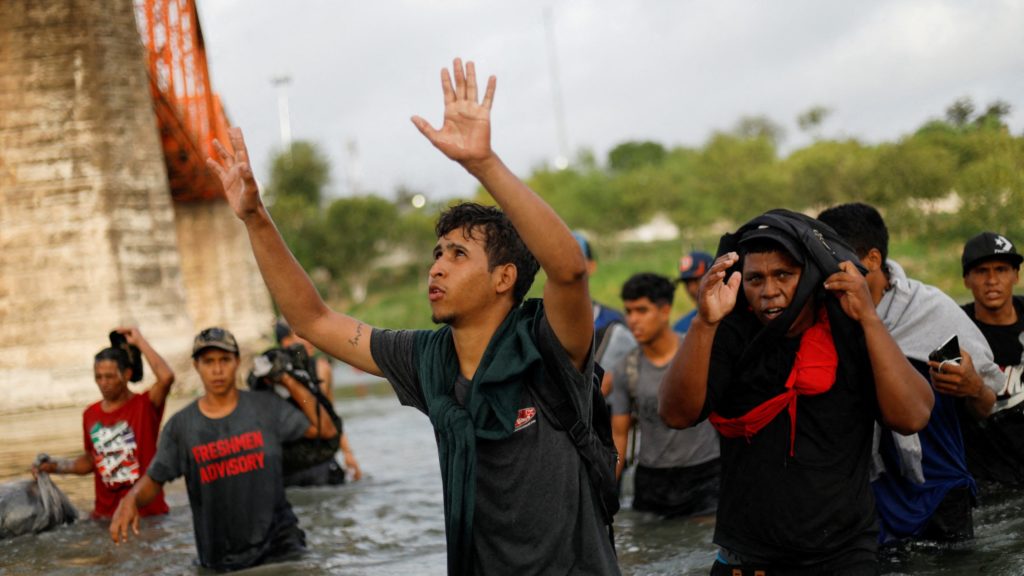Gov. Greg Abbott, R-Texas, is expected to sign an immigration bill that would make it a state crime to cross into Texas from Mexico. Catholic organizations including the Texas Catholic Conference of Bishops have opposed the legislation.
The bill, Senate Bill 4, was passed by Republican majorities in both the state House and Senate in November, making unlawfully crossing Texas' international border a state crime separate from a federal one.
Supporters of the legislation argue that it would combat unauthorized entry into the state by empowering law enforcement, while opponents argue it is unconstitutional and inhumane.
Jennifer Allmon, executive director of the Texas Catholic Conference of Bishops, wrote on the group's website that the legislation is "grossly imprudent and could have deadly consequences for innocent migrants." She added it is unlikely to survive a challenge in federal court.
Justin Estep, senior director of Immigration and Refugee Services at Catholic Charities of Central Texas in Austin, told the Texas House State Affairs Committee in Nov. 9 testimony that the church "does not condone or encourage illegal immigration because it is not good for society or for the migrant, who lives in fear and in the shadows."
Estep said that while "the church supports the right of a sovereign nation to control its borders," the "obligation to control the international border lies with federal authorities."
"Immigration enforcement should be exercised in a way that is targeted, proportional, and humane," he said.
The state's Lt. Gov. Dan Patrick, also a Republican, praised the legislation in a Nov. 15 statement following its passage by the Texas House of Representatives.
"Addressing the crisis on our southern border, perpetuated by the Biden Administration, is a top priority of mine," Patrick said, adding, "SB 4 is the strongest border security bill Texas has ever passed. SB 4 will require criminal background checks and the collection of fingerprints and photographs of those arrested for crossing the border illegally. The illegal crosser can be jailed or ordered by a magistrate to be returned to the border. If they violate the order and return to Texas, they will face even harsher penalties."
But critics said the bill is unlikely to stand up to the scrutiny of courts, and may not even be enforced following likely legal challenges.
Oni K. Blair, executive director at the ACLU of Texas, said in a Nov. 14 statement that the bill "overrides federal immigration law, fuels racial profiling and harassment, and gives state officials the unconstitutional ability to deport people without due process, regardless of whether they are eligible to seek asylum or other humanitarian protections."
Blair said the legislation "will directly harm people seeking asylum, Black and Brown communities, and the core principles of our democracy."
If Abbott signs SB 4 into law, Blair added, "we will sue."
A group of Texas judges wrote a letter to President Joe Biden asking him to intervene.
"We are writing to express our profound concern over legislation recently passed by the Texas legislature that makes local communities less safe, interferes with federal immigration enforcement, threatens our relationships with other nations and does not get us any closer to sound immigration policy," the letter said.
It was not immediately clear when Abbott may sign the bill, although he has indicated he will do so.

